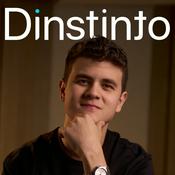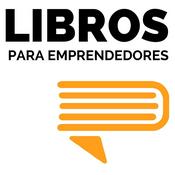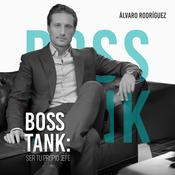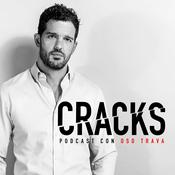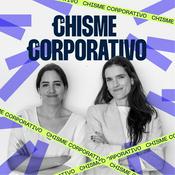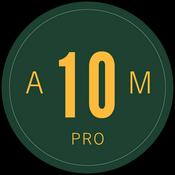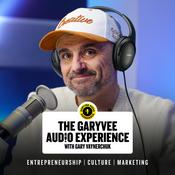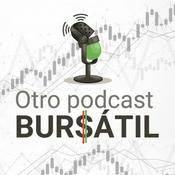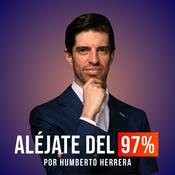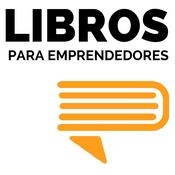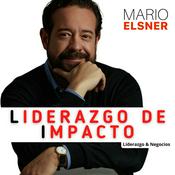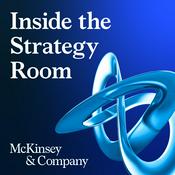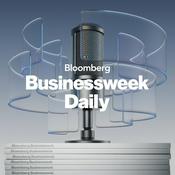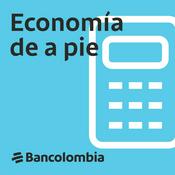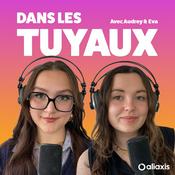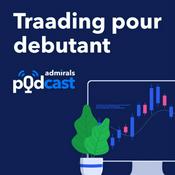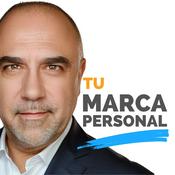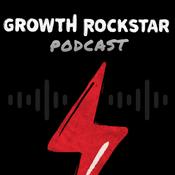81 episodios
- In this episode of ACM ByteCast, Rashmi Mohan hosts software development productivity expert Nicole Forsgren, Senior Director of Developer Intelligence at Google. Forsgren co-founded DevOps Research and Assessment (DORA), a Google Cloud team that utilizes opinion polling to improve software delivery and operations performance. Forsgren also serves on the ACM Queue Editorial Board. Previously, she led productivity efforts at Microsoft and GitHub, and was a tenure track professor at Utah State University and Pepperdine University. Forsgren co-authored the award-winning book Accelerate: The Science of Lean Software and DevOps and the recently published Frictionless: 7 Steps to Remove Barriers, Unlock Value, and Outpace Your Competition in the AI Era.
In this interview, Forsgren shares her journey from psychology and family science to computer science and how she became interested in evidence-based arguments for software delivery methods. She discusses her role at Google utilizing emerging and agentic workflows to improve internal systems for developers. She reflects on her academic background, as the idea for DORA emerged from her PhD program, and her time at IBM. Forsgren also shares the relevance of the DORA metrics in a rapidly changing industry, and how she's adjusting her framework to adapt to new AI tools. - In this episode of ACM ByteCast, Rashmi Mohan hosts 2024 ACM A.M. Turing Award laureates Andrew Barto and Richard Sutton. They received the Turing Award for developing the conceptual and algorithmic foundations of reinforcement learning, a computational framework that underpins modern AI systems such as AlphaGo and ChatGPT. Barto is Professor Emeritus in the Department of Information and Computer Sciences at the University of Massachusetts, Amherst. His honors include the UMass Neurosciences Lifetime Achievement Award, the IJCAI Award for Research Excellence, and the IEEE Neural Network Society Pioneer Award. He is a Fellow of IEEE and AAAS. Sutton is a Professor in Computing Science at the University of Alberta, a Research Scientist at Keen Technologies (an artificial general intelligence company) and Chief Scientific Advisor of the Alberta Machine Intelligence Institute (Amii). In the past he was a Distinguished Research Scientist at Deep Mind and served as a Principal Technical Staff Member in the AI Department at the AT&T Shannon Laboratory. His honors include the IJCAI Research Excellence Award, a Lifetime Achievement Award from the Canadian Artificial Intelligence Association, and an Outstanding Achievement in Research Award from the University of Massachusetts at Amherst. Sutton is a Fellow of the Royal Society of London, AAAI, and the Royal Society of Canada.
In the interview, Andrew and Richard reflect on their long collaboration together and the personal and intellectual paths that led both researchers into CS and reinforcement learning (RL), a field that was once largely neglected. They touch on interdisciplinary explorations across psychology (animal learning), control theory, operations research, cybernetics, and how these inspired their computational models. They also explain some of their key contributions to RL, such as temporal difference (TD) learning and how their ideas were validated biologically with observations of dopamine neurons. Barto and Sutton trace their early research to later systems such as TD-Gammon, Q-learning, and AlphaGo and consider the broader relationship between humans and reinforcement learning-based AI, and how theoretical explorations have evolved into impactful applications in games, robotics, and beyond. - In this episode of ACM ByteCast, our special guest host Scott Hanselman (of The Hanselminutes Podcast) welcomes ACM Fellow Dawn Song, Professor in Computer Science at UC Berkeley, Co-Director of Berkeley Center for Responsible Decentralized Intelligence (RDI), and Founder of Oasis Labs. Her research interest lies in AI safety and security, Agentic AI, deep learning, security and privacy, and decentralization technology. Dawn is the recipient of numerous awards including the MacArthur Fellowship, the Guggenheim Fellowship, the NSF CAREER Award, the Alfred P. Sloan Research Fellowship, the MIT Technology Review TR-35 Award, ACM SIGSAC Outstanding Innovation Award, and more than 10 Test-of-Time awards and Best Paper awards from top conferences in Computer Security and Deep Learning. She has been recognized as Most Influential Scholar (AMiner Award) for being the most cited scholar in computer security. Dawn is an IEEE Fellow and an Elected Member of American Academy of Arts and Sciences. She is also a serial entrepreneur and has been named on the Female Founder 100 List by Inc. and Wired25 List of Innovators.
Dawn shares her academic journey in cybersecurity, which used to be a much smaller field and how the MacArthur Fellowship (aka the “Genius Grant”) and other prestigious recognitions enabled her to pursue impactful multidisciplinary research. Dawn and Scott cover a myriad of topics around Agentic AI, including current and future security vulnerabilities from AI-powered malicious attacks, Dawn’s popular MOOC at RDI, and the associated AgentX-AgentBeats global competition (with more than $1 million in prizes and resources) focused on standardized, reproducible agent evaluation benchmarks to advance the field as a public good.
AgentX-AgentBeats Agentic AI Competition
Berkeley RDI Agentic AI MOOC - In this episode of ACM ByteCast, Bruke Kifle hosts Russ Cox, Distinguished Engineer at Google. Previously, he was the Go language technical lead at Google, where he led the development of Go for more than a decade, with a particular focus on improving the security and reliability of using software dependencies. With Jeff Dean, he created Google Code Search, which let developers grep the world's public source code. He also worked for many years on the Plan 9 operating system from Bell Labs and holds degrees from Harvard and MIT. Russ is a member of the ACM Queue Editorial Board.
In the interview, Russ details his journey from the Commodore 64 to Bell Labs, where he met Rob Pike (a co-designer of Go) and contributed to Plan 9 working alongside other legendary figures. Russ shares lessons learned while working on Google Code Search (a highly complex C++ program) and how that informed his later approach to the development and evolution of Go. They delve into the role of Go in the AI era and the future of computing. Russ also discusses the open-source community and collaboration around Go, touches on mentorship and leadership, and offers advice for aspiring builders. - In this episode of ACM ByteCast, Rashmi Mohan hosts Anusha Nerella, a Senior Software Engineer at State Street. She has more than 13 years of experience working on building scalable systems using AI/ML in the domain of high-frequency trading systems and is passionate about driving adoption of automation in the FinTech industry. Anusha is a member of the ACM Practitioner Board, the Forbes Technology Council, and is an IEEE Senior Member and Chair of IEEE Women in Engineering Philadelphia chapter. She has served as a judge in hackathons and devotes significant time mentoring students and professionals on the use of AI technologies, building enterprise-grade software, and all things FinTech.
Anusha traces her journey from growing up with limited access to technology to teaching herself programming to working at global firms including Barclays and Citibank and leading enterprise-scale AI initiatives. Anusha and Rashmi discuss the challenges of applying AI to a field where money and personal data are at stake, and workflows that prioritize trust, security, and compliance. They touch on the importance of clear data lineage, model interpretability, and auditability. The discussion also covers observability, tooling, and the use of LLMs in finance. Along the way, Anusha shares her personal philosophy when it comes to building systems where speed and reliability can be competing priorities.
Más podcasts de Economía y empresa
Podcasts a la moda de Economía y empresa
Acerca de ACM ByteCast
ACM ByteCast is a podcast series from ACM’s Practitioners Board in which hosts Rashmi Mohan, Bruke Kifle, Scott Hanselman, Sabrina Hsueh, and Harald Störrle interview researchers, practitioners, and innovators who are at the intersection of computing research and practice. In each episode, guests will share their experiences, the lessons they’ve learned, and their own visions for the future of computing.
Sitio web del podcastEscucha ACM ByteCast, Dinstinto y muchos más podcasts de todo el mundo con la aplicación de radio.net
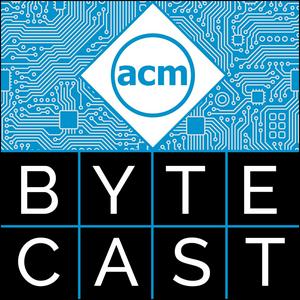
Descarga la app gratuita: radio.net
- Añadir radios y podcasts a favoritos
- Transmisión por Wi-Fi y Bluetooth
- Carplay & Android Auto compatible
- Muchas otras funciones de la app
Descarga la app gratuita: radio.net
- Añadir radios y podcasts a favoritos
- Transmisión por Wi-Fi y Bluetooth
- Carplay & Android Auto compatible
- Muchas otras funciones de la app


ACM ByteCast
Escanea el código,
Descarga la app,
Escucha.
Descarga la app,
Escucha.

